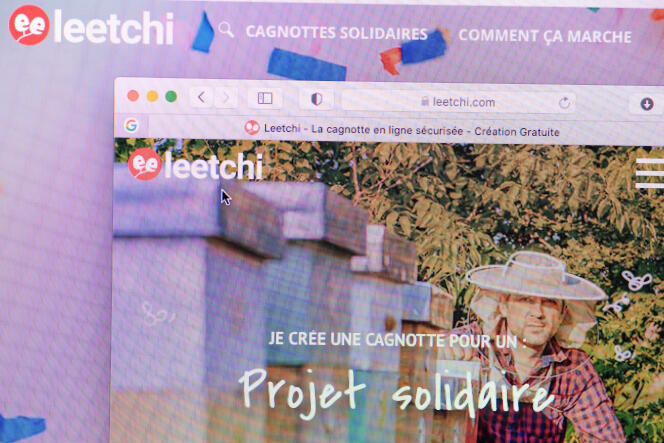
“In two days, you have changed the fate and prospects of my farm,” wrote Antoine Foulu-Mion in his crowdfunding post. Thanks to extensive media coverage, the 44-year-old organic farmer collected almost €79,000 in donations sent in by over 2,700 people. On the morning of March 15, he received a first instalment of €50,000. “My banker won’t believe it,” he said, happy to finally be able to pay off his €22,000 debt.
For the past two years, Foulu-Mion has been the victim of the organic produce crisis, which consumers have come to perceive as being too expensive in a time of sharp inflation. “I found myself with tons of produce and no one to buy it. I was forced to go into debt,” said the farmer, based in southeastern Isère département, in the French Alps. “This [crowdfunding] is an act of desperation that ultimately saved my life.”
His case is not an isolated one. When they were first created, online fundraisers were mainly used to pay for joint gifts, trips, personal projects, or farewell parties. However, the nature of the projects being funded has gradually changed.
Nowadays, they are also used to save a farm or a business, pay rent arrears, or even buy groceries for struggling people. The loss of purchasing power among the French, along with the health and inflation crises, have contributed to this shift. What started as a good idea among friends or colleagues has turned into a social safety net.
The trend is reflected in the numbers. Over the last five years, one in four French people has resorted to solidarity to meet their financial needs, according to a poll by the Odoxa Institute’s Observatory of Generosities commissioned by Leetchi, a popular crowdfunding platform. “In 2023, solidarity fundraising accounted for 25% of the amounts raised on our platform, totaling €60 million,” said Amandine Plas, marketing director at Leetchi. Moreover, the prominence of this solidarity funding is growing: “They grew in number by 13% between 2022 and 2023” on the platform, said Plas.
‘Left to fend for themselves by the bankers’
However, not all fundraising endeavors are successful like Antoine Foulu-Mion’s. Another farmer, Victor Bonnot, also a victim of dwindling interest in organic produce, launched a crowdfunding campaign two months ago. “I lost 50% of my clientele,” he said. He is €40,000 in debt. His online fundraiser has raised €4,400, just enough to pay his two minimum-wage employees – nothing more.
“At the moment, I’m paying them by sacrificing my income. In 2023, I only paid myself €6,000,” said the farmer from central France. Bonnot is currently negotiating a loan repayment extension with his bank. “So far, I’ve been left to fend for myself by my bankers,” he said, not confident that the outcome will be in his favor.
You have 51.43% of this article left to read. The rest is for subscribers only.



